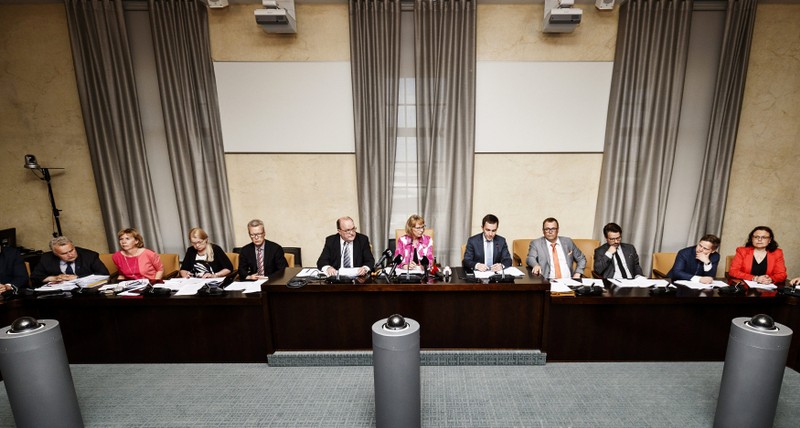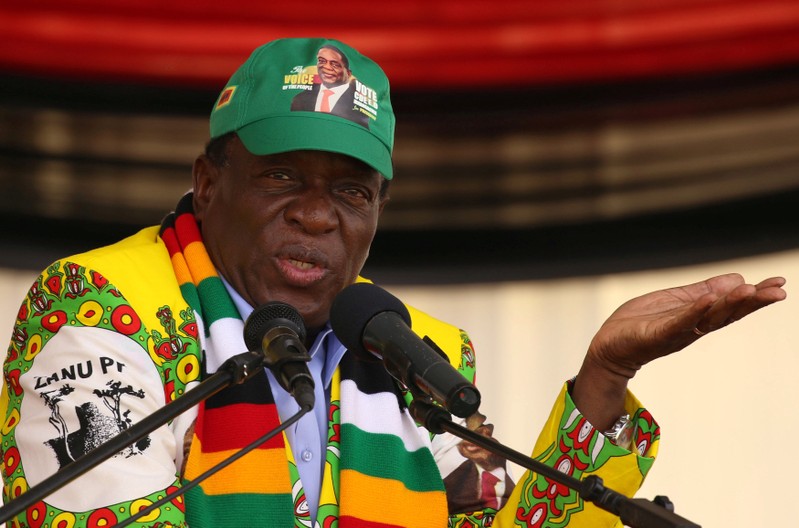
Chairman Annika Lapintie attends the news conference after the meeting of the constitutional law parliamentary committee, in Helsinki, Finland June 1, 2018. Lehtikuva/ Roni Rekomaa via REUTERS
June 1, 2018
By Jussi Rosendahl
HELSINKI (Reuters) – Finland’s health care reform package faced new delays on Friday after parliament’s constitutional law committee said the draft bill still breached the constitution and demanded a series of amendments.
Expected to save 3 billion euros ($3.5 billion) in future spending, the reforms are a cornerstone of Finland’s coalition government’s plan to balance public finances which are strained by the costs of a fast-ageing population.
The package has been in the works for over a decade as successive governments have squabbled over some key aspects and objections from lawmakers delayed it further.
“There are still serious constitutional problems and several rules to be revised in the bill,” the committee said in a statement.
In a response posted on his Twitter account, Finance Minister Petteri Orpo said the committee’s demands “require a lot of work, but it looks like the solution can be found.”
He also said the government would study the committee’s proposals and update the reform plan accordingly. Orpo, who is also the head of co-ruling NCP party, did not elaborate.
The government had planned for the bill to pass into law this summer and to be implemented in early 2020. The reforms aim to boost competition between public and private healthcare providers by opening up more opportunities for the private sector.
The reform is also due to establish 18 new counties and shift responsibility for the provision of services from local governments to new health care regions.
Prime Minister Juha Sipila from the Centre party has said that he would dissolve the coalition if the reform failed to pass the parliament.
The government came close to collapse in 2015 as coalition members struggled to agree on certain aspects of the plan. The package is already a complex compromise. Some politicians fear the new counties mean that the rural regions will take on too much power from the big cities, while others object to the private sector being given a greater role.
There has been renewed criticism of the package by some NCP lawmakers as of late and it remains unclear whether the government has enough support for the reform when it comes to a parliament vote.
Already last year, the constitutional committee caused a one-year delay to the project. In addition, many experts are skeptical that the reform could reach the targeted savings.
(Reporting by Jussi Rosendahl; Editing by Raissa Kasolowsky)

